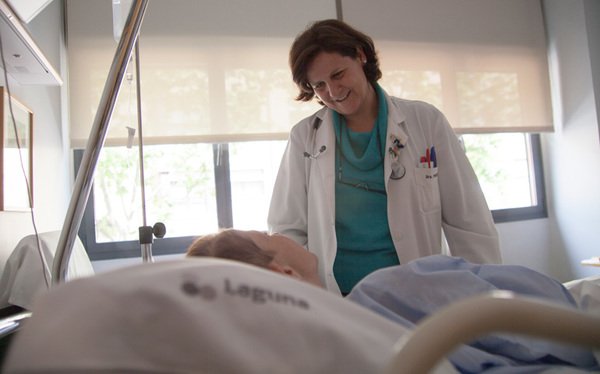
Palliative care... euthanasia? What do people think about death today? Talking about death is not politically correct in our culture, because we consider it as something alien to life; as if it only happens because of bad luck or misfortune.
However, in reality, death occurs at any time of life, even during childhood. The death of a loved one involves immense pain and grief due to the definitive physical separation of that person who is so important to us. It involves pain for the deceased and also pain for us, who are deprived of his or her presence.
The disease ends is the proximity of an irremediable death. It is characterized because the dying person has a "holistic or total pain". He suffers from physical, psychic, spiritual and social pain.
It is to end the life of a sick person. It is the intentional provocation of the death of a person suffering from an advanced, chronic or terminal disease. This death can be caused by action or omission.
Physicians are pained to see how in so-called advanced societies euthanasia is being introduced to rid society of annoying people who generate costs for the state.
At the same time, we are pleased to see that in places where palliative care and home care have been established, patients and their families show deep gratitude.
In our country they have been implemented in recent years, but there is an urgent need for a broader and more homogeneous development of palliative care throughout Spain.
Those who defend the euthanasia law use campaigns and mobilizations to stir people's feelings and try to demonstrate that it is not possible to 'do otherwise'.
They are based on the autonomy of the person, if he/she so desires. Autonomy that in practice does not exist, because We are all by definition vulnerable and dependent. And in a very special way, in the last moments of life, we are all vulnerable and dependent..

Fortunately, the humanization of health care and the control of the suffering of a terminally ill patient is today medically possible thanks to the correct application of the palliative careThese are administered according to an action guide based on ethical principles that guide clinical decision making.
Solidarity with terminally ill persons and their families implies the accompaniment and application of appropriate assistance resources. No one should have to face his or her own death alone, without essential help from others.
This solidarity involves say no to neglect, disinterest and oblivion. It implies saying yes to closeness, to human warmth, to the provision of quality care. A yes also to the alleviation of social suffering.
Non-maleficence arises from the Hippocratic ethics with the known, principle of Primum non nocare. Never harm the suffering human being is a prerequisite for any medical intervention.
This will involve verifying a correct diagnosis of terminality and avoiding medical measures that will not achieve the desired objectives.
It requires offering the same solutions to all patients. Guarantee the rights of the terminally ill patient and his family without discrimination..
For this purpose, it will be necessary to check the adequacy of :
Individuals should be treated as autonomous and persons whose autonomy is diminished should be the object of care. One way of respecting autonomy is to promote in practice the participation of the patient and his or her family in decision-making.
What does this imply?
It requires causing no harm. Maximize possible benefits and minimize possible harm. Palliative care performs an objective benefit-risk analysis, applies a comprehensive multidisciplinary care plan. And apply the final sedation, when it is necessary with a protocol. ethically correct.
In view of the foregoing, I consider:
First, that it is vitally important to awareness at all levelsand individual, medical, medical, social, family and individual, of the radical difference between "palliative care and euthanasia".
Second, that it is vitally important naturalizing and humanizing the final trance of existence, respecting the dignity of the person in each particular case. The most important moment of a person's life is the moment of death.
Thirdly, that the establishment of the law on euthanasia, the application of which is open to errors and misunderstandings, is to be rejected. And yet it is urgent to establish, as soon as possible, a law on palliative care.
Ana María Álvarez Silván, physician emeritus HUVR.